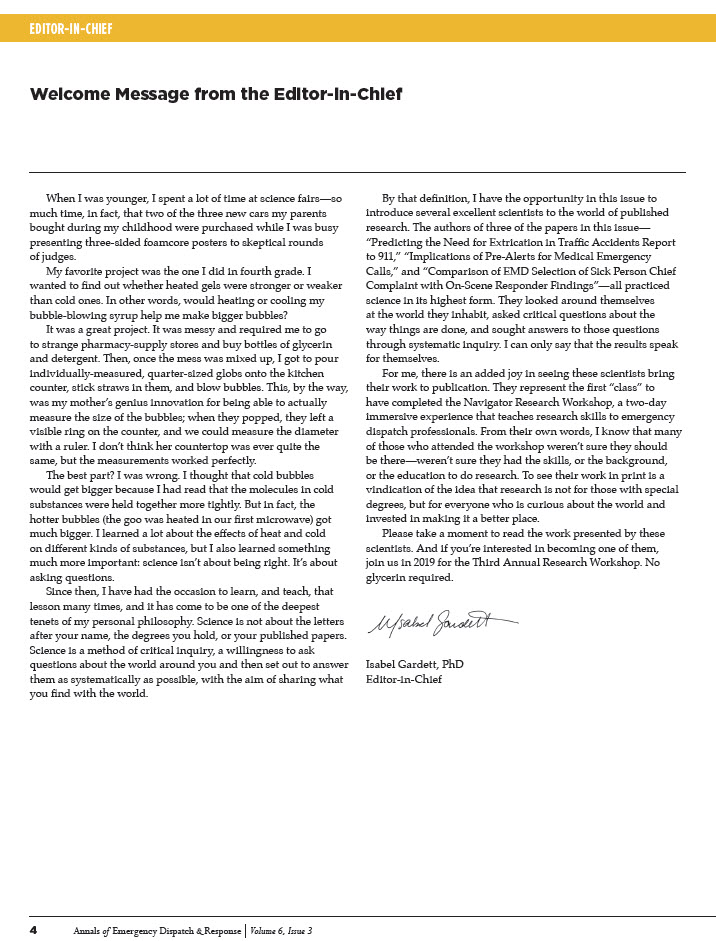
Message From the Editor-in-Chief
When I was younger, I spent a lot of time at science fairs—so much time, in fact, that two of the three new cars my parents bought during my childhood were purchased while I was busy presenting three-sided foamcore posters to skeptical rounds of judges.
My favorite project was the one I did in fourth grade. I wanted to find out whether heated gels were stronger or weaker than cold ones. In other words, would heating or cooling my bubble-blowing syrup help me make bigger bubbles?
It was a great project. It was messy and required me to go to strange pharmacy-supply stores and buy bottles of glycerin and detergent. Then, once the mess was mixed up, I got to pour individually-measured, quarter-sized globs onto the kitchen counter, stick straws in them, and blow bubbles. This, by the way, was my mother's genius innovation for being able to actually measure the size of the bubbles; when they popped, they left a visible ring on the counter, and we could measure the diameter with a ruler. I don't think her countertop was ever quite the same, but the measurements worked perfectly.
The best part? I was wrong. I thought that cold bubbles would get bigger because I had read that the molecules in cold substances were held together more tightly. But in fact, the hotter bubbles (the goo was heated in our first microwave) got much bigger. I learned a lot about the effects of heat and cold on different kinds of substances, but I also learned something much more important: science isn't about being right. It's about asking questions.
Since then, I have had the occasion to learn, and teach, that lesson many times, and it has come to be one of the deepest tenets of my personal philosophy. Science is not about the letters after your name, the degrees you hold, or your published papers. Science is a method of critical inquiry, a willingness to ask questions about the world around you and then set out to answer them as systematically as possible, with the aim of sharing what you find with the world.
By that definition, I have the opportunity in this issue to introduce several excellent scientists to the world of published research. The authors of three of the papers in this issue—"Predicting the Need for Extrication in Traffic Accidents report to 911," "Implications of Pre-Alerts for Medical Emergency Calls," and "Comparison of EMD Selection of Sick Person Chief Complaint with On-Scene Responder Findings"—all practiced science in its highest form. They looked around themselves at the world they inhabit, asked critical questions about the way things are done, and sought answers to those questions through systematic inquiry. I can only say that the results speak for themselves.
For me, there is an added joy in seeing these scientists bring their work to publication. They represent the first "class" to have completed the Navigator Research Workshop, a two-day immersive experience that teaches research skills to emergency dispatch professionals. From their own words, I know that many of those who attended the workshop weren't sure they should be there—weren't sure they had the skills, or the background, or the education to do research. To see their work in print is a vindication of the idea that research is not for those with special degrees, but for everyone who is curious about the world and invested in making it a better place.
Please take a moment to read the work presented by these scientists. And if you're interested in becoming one of them, join us in 2019 for the Third Annual Research Workshop. No glycerin required.
